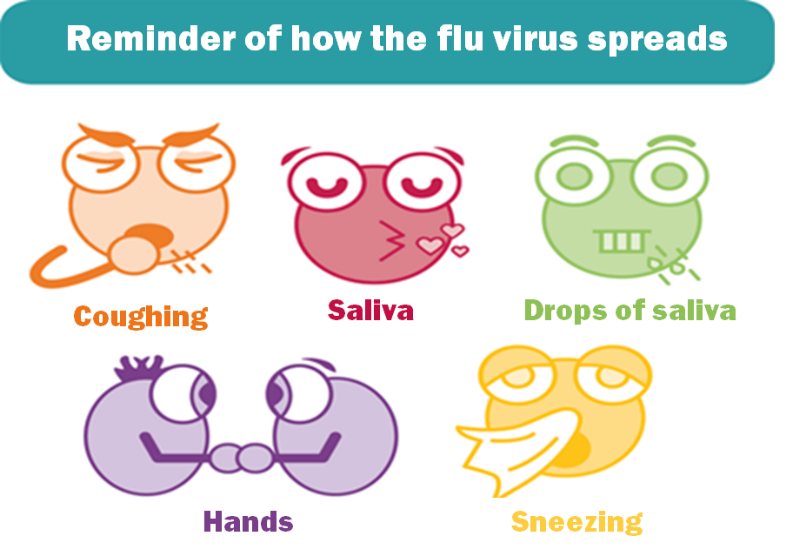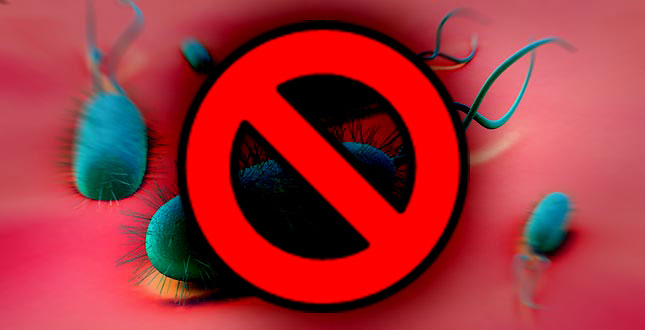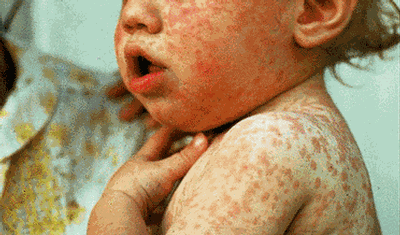Well-Being ?

Vaccination against pneumococcus in adults
Information compiled by Domus Medica
Pneumonia can be caused by a virus or bacteria. A bacterial infection with pneumococcus is more risky in the elderly. Can vaccination reduce the risk and for whom is vaccination recommended?
What is pneumococcus?
-
Pneumococci are bacteria that are passed from person to person through exhaled droplets when coughing or sneezing.
They can cause infections of the lungs (pneumonia) and the meninges (meningitis).
Pneumonia caused by pneumococci can be particularly serious in people over 65.
In one person out of four, large numbers of pneumococci can enter the bloodstream. This can lead to life-threatening blood poisoning or sepsis. These invasive infections are fatal in four out of ten cases.
Meningitis caused by pneumococci is also more serious in the elderly. Eight out of ten elderly people who get pneumococcal meningitis die from it. People who survive the disease are left with lesions (e.g. deafness).
How does the pneumococcal vaccine work?
-
The vaccine teaches the body how to make antibodies against the pneumococcal bacteria.
In the event of a pneumococcal infection, the body can then produce protective antibodies more quickly and the chance of recovery increases.
The vaccine protects healthy people over 65 in half of all cases against invasive pneumococcal infections (with blood poisoning).
The vaccine does not protect against other pneumonia.
In healthy adults, these antibodies remain present for five years. The vaccination therefore has to be repeated every five years.
Who should get vaccinated?
-
Vaccination is recommended for people who are at high risk of pneumococcal blood poisoning:
- Adults who have had their spleens removed
- Adults whose spleen does not work anymore
- Adults with cerebrospinal fluid leakage
- Adults with a cochlear implant
- Adults with sickle cell anaemia
- Adults with haemoglobin pathology
- Adults with impaired immunity (due to HIV, blood cancers or medication)
Vaccination is considered in people over 50 years of age suffering from heart disease, lung disease, liver disease or kidney disease.
In smokers or people who drink too much, the risk of blood poisoning is increased and vaccination may be considered.
In healthy people over 65 years of age, vaccination can be discussed.
What vaccines are available?
-
Two vaccines are currently available in Belgium. Pneumo 23® and Prevenar 13®. Both are not reimbursed for adults. Which vaccine or combination of vaccines is appropriate depends on your risk profile. Your GP will discuss this with you.
The pneumococcal vaccine has few serious risks.
Slight pain or hardening may occur at the site of injection. You may feel a little feverish and tired and/or experience muscle and joint pain. This goes away spontaneously after a few days.
Talk it over with your doctor.
This information is intended to support and not replace a consultation with the doctor. It assumes that the patient has been seen by the GP and that the information has been discussed.
Reference::
Domus medica. Patiëntinformatie: vaccinatie tegen pneumokokken bij volwassenen. More information concerning their guidelines: https://www.domusmedica.be/richtlijnen/themadossiers/vaccinaties

Prevention file
Screening for colorectal cancer
-
- >Annually, between 8000 and 9000 cases of colon cancer are detected in our country.
- In Belgium, screening is recommended every 2 years.
- Screening is completely free between 50 and 79 years old.
- The earlier it is detected, the higher the chances of successful treatment.
To receive your screening kit, it suffices to order it with your pharmacist. Afterwards you perform the test at home. The results will be sent within 15 days to your general practitioner, who will share the results with you.
You will find more information on the following websites:
Breast cancer screening
-
In Belgium between 10 000 and 11 000 new cases of breast cancer are detected every year. Benign tumours are detected regularly when performing screening.
Unfortunately, other tumours which are detected too late turn out to be malignant.
Breast cancer is the most common cancer in women. An early diagnosis, and thus screening, is therefore important. This is possible thanks to mammography.
This investigation is recommended in Belgium every two years to all women aged 50 to 69 years old.
You will find more information on the following websites:
Uterine cancer
-
Endometrium cancer (or cancer of the uterine body) is the fifth most frequent cancer in women (After cancers of the breast, colon, lungs and skin).
According to data of the cancer register, 1483 cases of uterine cancer were detected in 2016.
(Source: Cancer fact sheets, Registre du Cancer, Année d’incidence 2016, Bruxelles 2019)Screening for this type of cancer is possible with a smear test/pap test. This exam is recommended, every three years, for all women aging 25 to 64 years old. The smear test is executed by your general practitioner or gynaecologist. This screening is provided in Medisina.
You will find more information on the following websites:
The seasonal flu
Definition
What is it ?
 An infection of the respiratory system, provoked by the influenza virus.
An infection of the respiratory system, provoked by the influenza virus.
-
When does it occur ?
In the winter, usually during the months January to March.
Is there a vaccine ?
YES. It is recommended for persons at risk to get the flu shot every year.
 This virus affects 5 to 10% of the world population!
This virus affects 5 to 10% of the world population!How does it spread ?
The flu is very contagious !
Spreading of the virus
Through coughing, sneezing, talking, laughing, hands,…
- • Big particles are being spread by coughing and sneezing. They attach themselves on furniture, hands,...
- Very small particles (droplet nuclei) float through the air and are able to spread at a distance from the sick person.
Symptoms ?
- Fever/feverish feeling/shivers
- Headache
- Pain at the level of the sinuses or ears
- Respiratory problems: cough, blocked nose, sore throat
- Gastrointestinal symptoms
- Muscle strain and joint pain
- Malaise/tiredness
When does it appear ?
Incubation period = time between infection with the virus and appearing of the first symptoms, is between 24 to 48 hours
Duration ?
The flu lasts +/- 5 to 7 days
Complications of the flu ?
- Bacterial surinfection
- Bronchitis, sinusitis, pneumonia,..
- Pneumonia: rare but increases the mortality
- Other rare manifestations:
- Encephalitis, myocariditis
- Hospitalisation, death (the risks increase with age)
Not to be confused: The flu and a cold, angine or pharyngitis.
The flu is a disease that can be serious.
Difference between the flu and a cold
Symptoms(++) Symptoms(+) Fever > 39°C Fever 37-38°C Muscle pain Shivers Great fatigue Running nose Exhaustion Temporary tiredness Respiratory problems Risks Risks Contagion Contagion Bacterial complications Bacterial complications Death Prevention Prevention Vaccination No Treatment
- Antibiotics do not work
- Symptomatic treatment: Decongestion, antitussives, painkillers,… and REST
- Preventive measures :
- Hand hygiene, disposable paper tissues
- Alcohol gel
- Vaccination
- Antiviral medication: (only for specific cases)
Vaccination
Recommended for all risk groups :
- Groupe 1 : les personnes à risque (de complications)
- Toutes les femmes enceintes, peu importe le trimestre dans lequel elles sont ;
- Toute personne en dessous de l’âge de 6 mois qui présente une affection chronique sous-jacente (stabilisée ou non) des poumons, du cœur, du foie, des reins, des troubles métaboliques ou neuromusculaires, troubles immunitaires (naturels ou induits) ou avec un IMC > 35 ;
- Personnes à partir de 65 ans ;
- Personnes admises dans un établissement ;
- Enfants entre 6 mois et 18 ans sous traitement chronique à l'acide acétylsalicylique
- Groupe 2 : le personnel du secteur de la santé
- Groupe 3 : les personnes qui vivent sous le même toit que
- des personnes du groupe 1 ;
- des enfants âgés de moins de 6 mois
- De plus, le Conseil Supérieur de la Santé recommande également la vaccination de toutes les personnes âgées de 50 à 64 ans, même si elles ne souffrent pas d'un trouble à risque, notamment si elles fument, boivent de manière excessive ou sont obèses.
Does the vaccine hurt ?
Yes, sometimes
Persons allergic to proteins from chicken egg must not be vaccinated!
Frequently asked questions:
1. Can you get the flu by getting the flu shot?
- a. NO, the vaccine consists of broken down pieces of virus.
But sometimes the vaccine can cause general reactions: <15% among which light fever, muscle strain, joint pain, malaise (clearly less intense than the flu), 6-12 hours after administration.
2. I have been vaccinated and I’ve still been sick...
- ! Do not confuse the flu with a "cold" !
- Winter period (from November to April): this period is very favourable for all kinds of infections of the respiratory tract.
! The vaccine is not 100% effective against the risk of infection.
3. Does the vaccine protect you against the virus of last year ?
- NO, the vaccine contains in general different viruses every year (new strains)
- The composition is determined annually by the WHO on the basis of epidemiological observations. But sometimes an unexpected virus triggers an epidemic.
- NO, because the immunity decreases progressively after vaccination. The protection becomes weaker after one year.
4. Is it necessary to have the vaccine when you are in good health ?
- Nobody is resistant against the flu. Everybody gets infected repeatedly by viruses, without having remarkable symptoms.
5. Why letting yourselves get vaccinated ?
- To protect the people you take care of or get in contact with, your colleagues, your family and yourselfli>

6. Kan the influenza virus be transmitted to the patient through the hands of the caregiver or through the airways ?
7. Does vaccinating healthcare staff offer protection to susceptible patients who receive their care ?
- Yes, studies have shown that the global mortality of residents decreases when the staff is vaccinated against the flu.
8. In what ways does the virus spread ?



The Vaccines
How do they work ?
A vaccine contains death or severely weakened pathogen germs.
The immune system reacts to this by making antibodies.
-

When real pathogens enter our body…
- Our immune system recognises them faster.
- The already created antibodies neutralise the intruder immediately.
- The disease cannot manifest itself, the vaccinated person is protected.

Why do we vaccinate ?
1. Protection of the vaccinated child
- Protection against complications or even death following a serious disease.
2. Herd immunity of the general population
- The pathogen is less transmissible from one person to another.
- Persons who can’t get vaccinated are thus protected indirectly.
La rougeole

3. Complete eradication of infectious diseases
- a. For example: the eradication of the smallpox virus in 1977 thanks to vaccination > No vaccine needed anymore
4. Building up immunity
- A vaccine is simpler, safer and cheaper than the treatment of a serious disease.
Prevention is better than cure!
Bangladesh, 1973

Dangerous? Not at all!
Possible side effects:
- Fever
- Local reaction: redness, induration of the skin
- Mild pain at the injection site
Very rare: Allergic reaction

There is no scientific evidence supporting a link between vaccines and serious or chronic diseases.
Questions? Remarks?
Talk about it with your general practitioner.
Our partners










